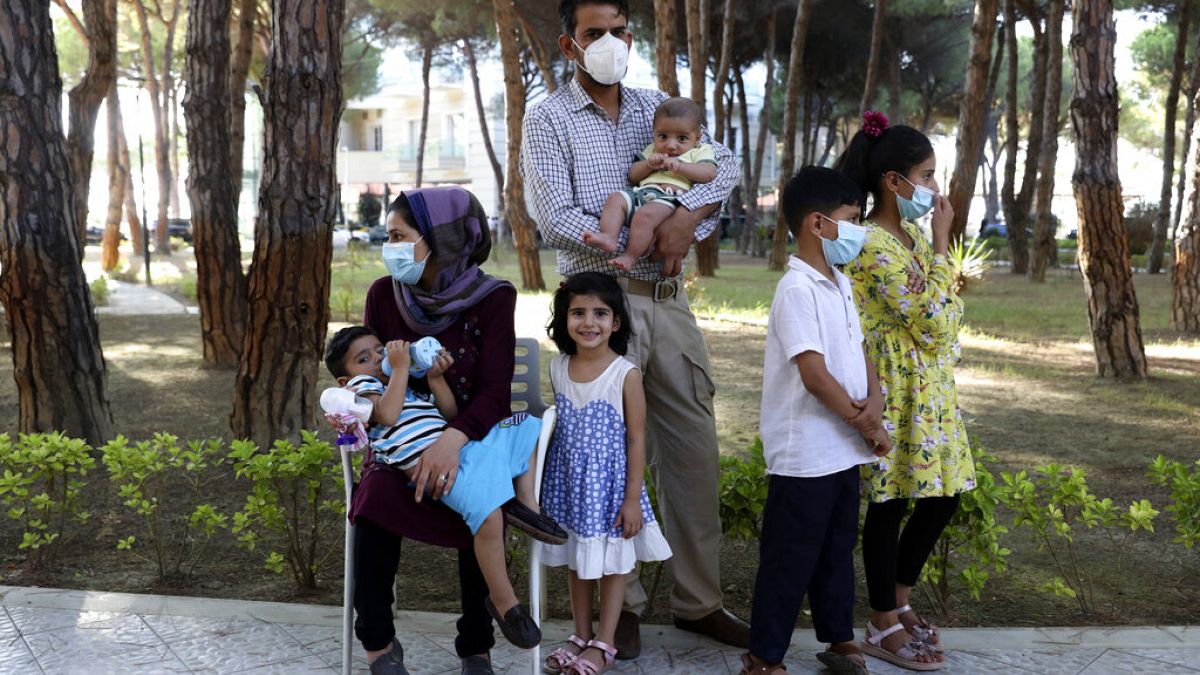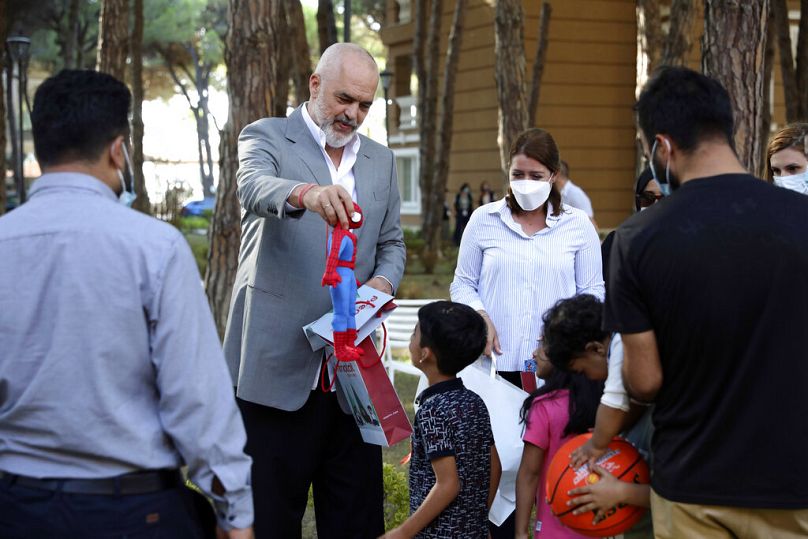"Evacuees ran the gamut of human experience—from a two-month-old baby to a septuagenarian using a wheelchair."
They are mothers, fathers, and children. Human rights activists, journalists, civil servants, and artists. They dedicated their lives to building a more democratic and vibrant Afghanistan, only to be forced to flee in desperation as the government quickly fell. They are among the fortunate who were brought out on planes to safety in Albania, even as Kabul airport descended into chaos and violence. They are relieved to have escaped, but anxious for loved ones, colleagues and neighbours who remain — and for the future of the country they love.
I had the privilege to visit 200 or so Afghan evacuees less than 24 hours after they landed near Durrës, a seaside town in Albania. Many were colleagues from Open Society Afghanistan, whose offices were forced to close due to the Taliban takeover. Some shared how astonished they were at the speed of the government’s collapse – “like a house of cards,” as one said – and were still processing what had happened. The children adapted more quickly, playing ball, singing songs and marvelling at the sight and smell of the sea many of them had never seen before.
It was a harrowing journey out, one that involved inspiring cooperation between government agencies, civil society, and countless brave Afghans operating under the most stressful possible circumstances. As the pace of the Afghan government’s collapse became clear, colleagues at the Open Society Foundations swung into action, doing everything in their power to rescue our staff and partners, as so many others with friends, family, and coworkers desperate to escape Afghanistan have done.
A core group of the foundation’s staff — in the US, throughout Europe, and as far away as Australia —worked around the clock, joining with local and international partners to pool knowledge and resources to bring as many people as possible to safety. From negotiating with host countries to arranging convoys and aircraft, to compiling passenger lists and finding accommodations, colleagues worked with partners in pursuing every lead to ensure safe passage.
Their journey began with clandestine meetings, navigating checkpoints and gates patrolled by the Taliban. There were anxious starts and stops and gruelling hours stuck on overheated buses outside the airport amid deteriorating security conditions. Evacuees ran the gamut of human experience—from a two-month-old baby to a septuagenarian using a wheelchair. One group made it to the gate shortly before the first terrorist attacks threw the airport into total chaos. Two hours later, they were airborne. In all, we were able to evacuate by air 158 of our staff and 112 partners, while offering support to efforts that helped rescue hundreds more.
None of this would have been possible without the generous support of countries and leaders willing to temporarily host evacuees, who worked with us to help procure accommodations, provide COVID tests and vaccines, and offer psychosocial support.
Enormous credit goes to Albanian Prime Minister Edi Rama, the first head of government on the world stage to offer refuge when the US announced its withdrawal back in April. He personally welcomed members of our staff as they landed in Albania and sought to persuade them and many others to settle in the country, stressing the contributions he felt they could make to society there.
Prime Minister Zoran Zaev of North Macedonia has stepped up as well, opening his nation’s arms to offer Afghans and civil society partners refuge in their hour of need. NATO’s newest member, North Macedonia has already accepted more people fleeing Afghanistan than many of its much larger European neighbours.
The welcoming approach shown by these Western Balkan countries should serve as an inspiration to other nations we need to see step up in taking in Afghan evacuees. In Europe, welcoming those fleeing violence and oppression has become a toxic political issue. Rama and Zaev, by contrast, see welcoming these refugees as the right thing to do—which is remarkable, given that Albania was one of the most isolated and repressive regimes in the world just 30 years ago. In terms of development, it is perhaps the country on the European continent that has come the farthest since the end of the Cold War.
As relieved as the evacuees I met with are to be safely out of Afghanistan, I know that there is hard work ahead. They need to reckon with all they’ve left behind and to begin to build new lives, without yet knowing their final destination, and with so many of their family and friends still in harm’s way.
The Open Society Foundations will continue to do what we can to help. We have launched a $10 million Afghanistan Emergency Humanitarian Fund to help expand access to safe pathways for Afghans in peril and support host countries receiving Afghans fleeing the Taliban. The fund is growing thanks to the support of other donors who have joined this effort. We are aiding Afghan refugees in the U.S. and other countries and will continue to advocate for other governments to welcome as many Afghans as possible.
We owe these evacuees no less. As I met with the group gathered in Durrës, I listened to their stories of the violence and chaos that has befallen their homeland, and the hardships they endured on the long and difficult journey to safety. But I was also struck by the hope in their eyes, as their thoughts turned to their new lives ahead. As the son of an immigrant myself, I recognised the power of dreams to forge new possibilities from dire circumstances.
May their futures be bright.
Alexander Soros is deputy chair of the Open Society Foundations

